Sound identification Alphabet Worksheets for Ages 4-9
5 filtered results
-
From - To
Discover our engaging Sound Identification Alphabet Worksheets for children ages 4-9, expertly crafted to enhance their phonemic awareness and reading abilities. These vibrant worksheets provide young learners with fun activities focused on associating letters with corresponding sounds, aiding in their alphabet mastery. Perfect for both classroom settings and home practice, our resources support children's reading development and confidence in recognizing letters and their sounds. Ideal for remaining engaged while learning, these printable worksheets make early literacy advancement enjoyable and effective. Visit Kids Academy for a collection of activities that foster essential learning skills, ensuring a robust foundation in phonics and letter recognition.
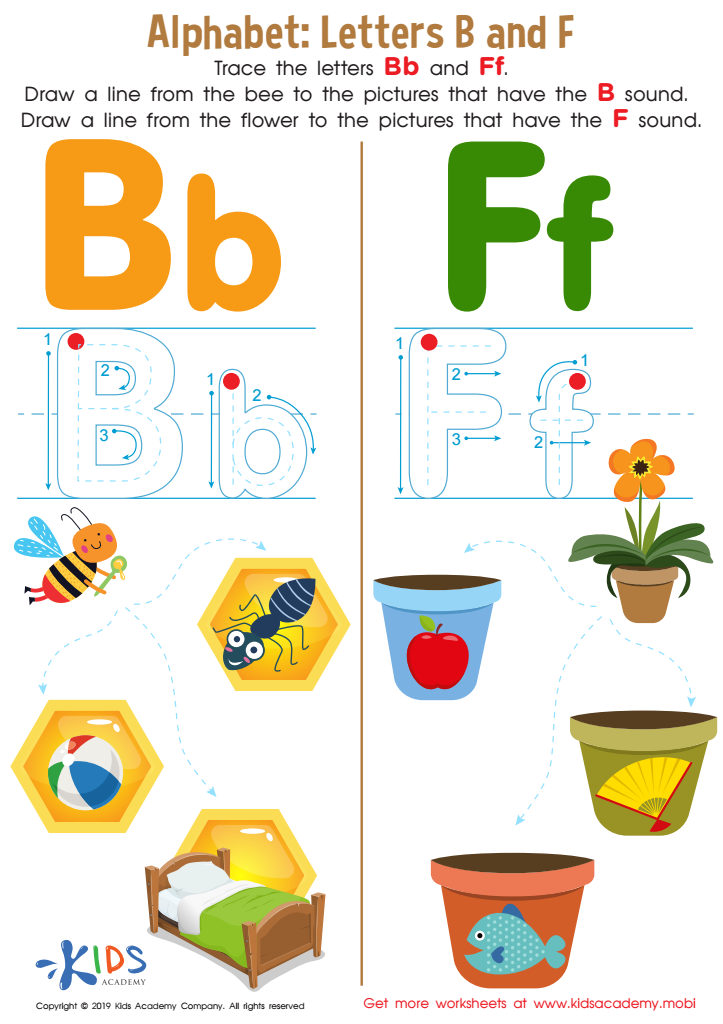

Letters B and F Tracing Worksheet
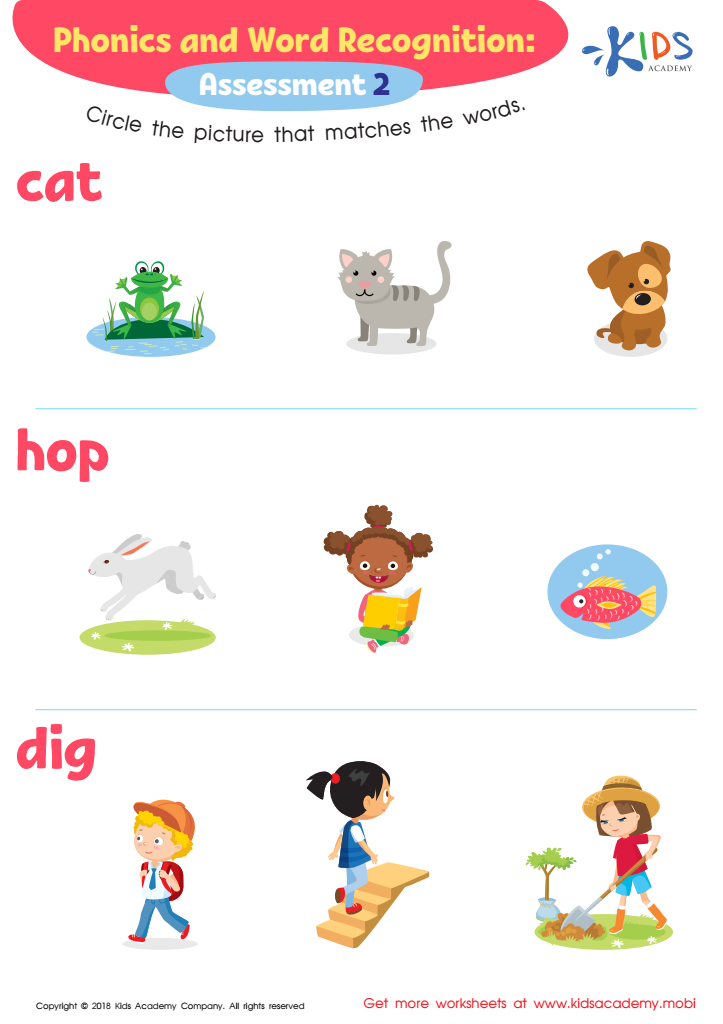

Phonological Awareness: Assessment 2 ELA Worksheet
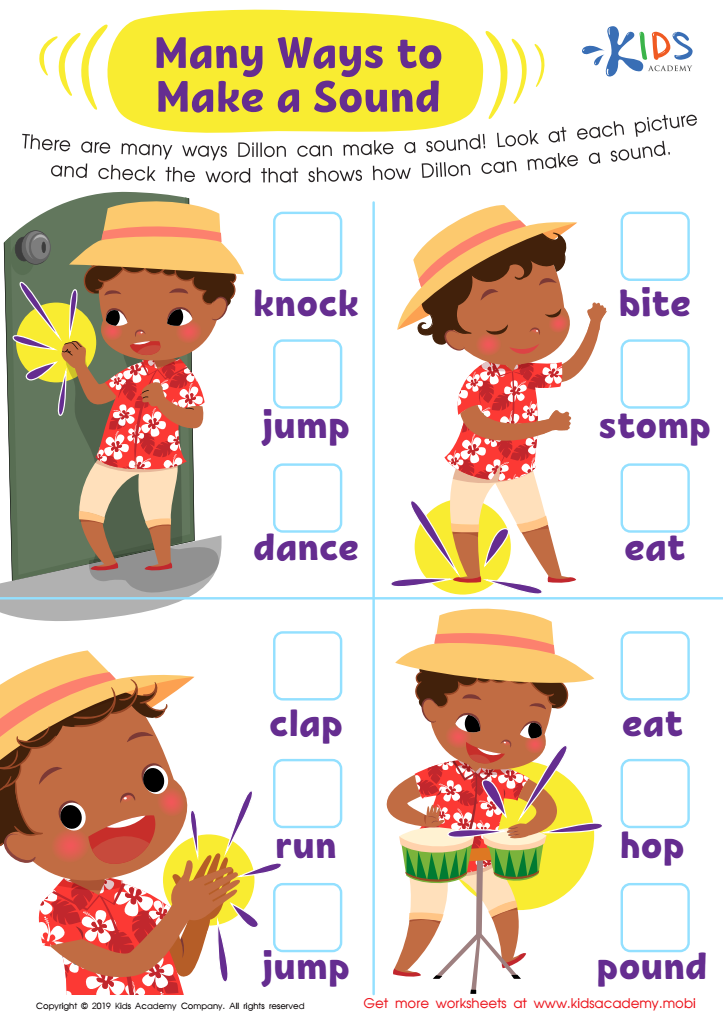

Many Ways to Make a Sound Worksheet
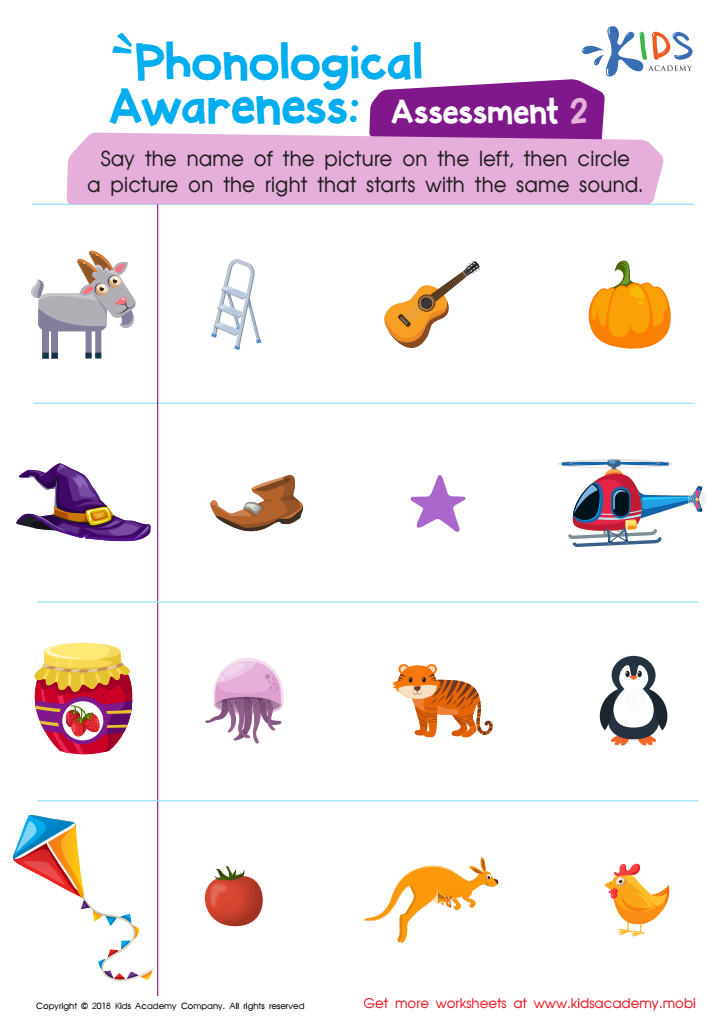

Phonological Awareness: Assessment 2 Worksheet
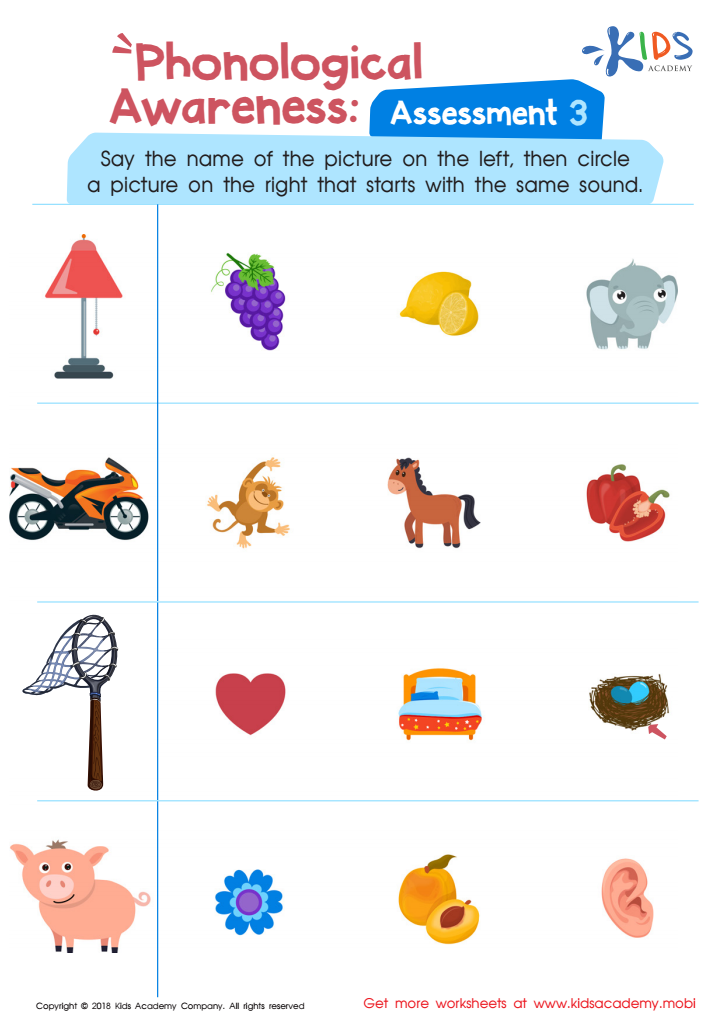

Phonological Awareness: Assessment 3 Worksheet
Sound identification in the alphabet is a fundamental building block for early literacy, essential for children aged 4-9. This skill underpins a child's ability to decode words and ultimately affects their reading and writing proficiency. When children can accurately identify sounds linked to specific letters, they form the basis for successful phonetic reading strategies. This is crucial because fluency in phonics leads to better comprehension, improved vocabulary, and a higher likelihood of academic success across other subjects.
For parents and teachers, emphasizing sound identification fosters a supportive learning environment. Early mastery allows children to progress to more complex literacy skills without struggling to catch up. Moreover, engaging in fun, phonics-based activities can make learning enjoyable and stress-free, helping to develop a love for reading from a young age. It also boosts children’s confidence, as they become more capable and eager young readers.
Beyond academics, literacy is vital for communication skills, problem-solving, and cognitive development. Parents and educators thereby play a critical role in providing the right tools and encouragement to support these foundational skills. In summary, caring about sound identification ensures children not only achieve literacy milestones but also gain lifelong benefits spanning various aspects of their lives.

 Assign to My Students
Assign to My Students














